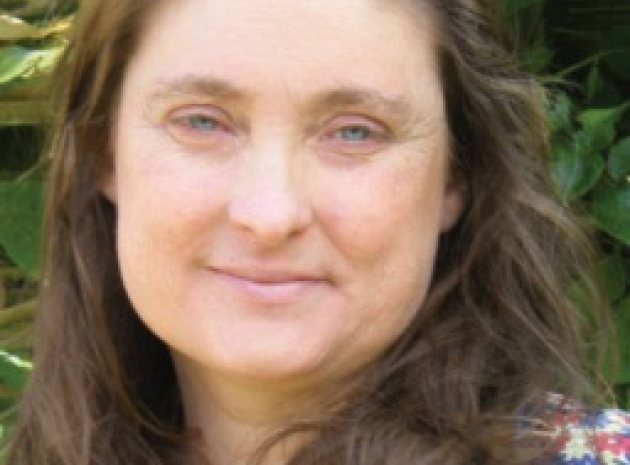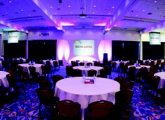What do school pupils understand about research? Interestingly, if you undertake a search of the primary research literature in order to find out the answer to this question, you identify another: why doesn’t this literature exist? What there is – and it isn’t much – focuses on students in higher, not compulsory education; so what is the reason for this gap in our collective understanding?
As a society we are familiar with the concept that research is vital to secure future economic growth and prosperity. The present government’s decision to ring fence science, technology, engineering, maths and medicine (STEMM) funding – even in a time of economic austerity – highlights the beneficial impact that investing in STEMM research brings to our economy. With evidence such as the recent report published by the Institute of Food Research (IFR), which suggests that for every £1 invested in their research programmes the UK economy gained £8, it could be argued that the Government has a point. Moreover, let’s not forget that research is a process embedded right across the sciences, social sciences, humanities and the arts; it exists in all our academic disciplines.
Research – broadly defined as ‘a robust investigation designed to find and interpret facts’ – can be personal to the individual. This is demonstrated when people, including teenagers, investigate signs and symptoms of common ailments encountered by friends and family; or, when they want to find out how to rescue a mobile phone that has had a close encounter with standing water; or they are comparing the specifications of different gaming PCs. When given sufficient motivation, people of all ages can become very adept at research techniques, distilling information and comparing data.
Teaching young people about research is vital if we want to encourage them to evaluate evidence in order to make informed decisions. School curricula have clearly recognised this especially at KS3 and KS4, where pupils research questions as diverse as ‘Who was the outlaw Billy the Kid and what was his role in the American West?’ or ‘How is stage direction and characterisation used in dramas such as The Women in Black?’ This is of course also important in science education where pupils are asked to research questions such as ‘How does the concentration of a chemical reagent affect reaction rates?’ Pupils are tasked to research their questions using books, media sources and the internet perhaps as part of a bigger project, a practical investigation or maybe just to complete a piece of homework. This type of research is most often content-driven and about ‘fact’ finding; and, a key point is that the research questions are often given to pupils at the start of the task as they are linked to specific learning outcomes.
The right questions
In 2012 we were awarded a grant from the Research Councils UK (RCUK) to establish a schools-university partnership. The aim of the funding is to bring new research-focused activity into the school environment using links between universities, teachers and schools. This funding is part of a nationwide project badged the School: University Partnership Initiative (SUPI). Currently there are ten SUPI projects across the UK. Our SUPI is in the Eastern region and is coordinated by a team of researchers at the University of East Anglia and teachers in local schools. The schools are predominantly mixed state secondary schools, located in city, town and rural areas with one mixed independent school.
One of the first things we were keen to explore was: what do pupils currently understand and think about research? We wanted to discover:
* Do they think research is a valuable activity?
* What do they think research entails?
* Who do they think does research?
Gathering the Data
With the help of SUPI teachers in our partnership schools, we designed a short questionnaire of 25 questions using a Likert Scale (1-5) to tease out what research means to pupils. We distributed the questionnaire to our seven partnership schools in Norfolk and five schools in Cambridgeshire. Our teacher partners distributed the questionnaire and gathered the completed data before they sent it back to us to analyse. We had a total of 2634 returns across KS3, KS4, and KS5.
So what do pupils think research is?
It was encouraging to see that our pupil respondents clearly value research. 70% strongly agreed/agreed with the statement ‘Research is a worthwhile activity’. A substantial number, 77 %, felt that ‘knowing how to do research will help my future career’ and a considerable majority, 82%, were confident that they could do research. Furthermore 84% strongly agreed/agreed they did research at school!
What do our pupils think research entails? It seems that pupils’ exposure to a wide variety of research tasks across the subjects they study at school has convinced them that research can be conducted in different ways including field trips (82%), questionnaires (86%) and work in libraries (81%).
So far so good. Some of our results though are a little less encouraging, or even intriguing. Here are the three most striking:
* Only 39% of pupils were convinced that the research process starts with formulating a research question (figure 1). The contemporary definition of the scientific method can be traced back to Francis Bacon’s ideas of inductive reasoning and was adopted by the Royal Society in the 1660s as a method to promote the drawing of inferences from evidence or experimentation. In the Humanities an analogous method exists and is known to historians as the ‘historical method’. Without a well-defined research question, any subsequent observation, investigation or experimentation can become meaningless. As we reflected on this result, it became clear to us that the process of formulating a research question is actually a higher order skill. Pupils are indeed comfortable with the actual processes involved in research. But, within a school environment, they are typically provided with research questions and rarely have the opportunity to participate in shaping the object of research through developing research questions themselves. In fact this isn’t just the case in compulsory education; many students can progress through their first degrees in Higher Education without having an opportunity to develop their own research questions.
* Only 17% of pupils strongly disagreed or disagreed that research is undertaken to confirm personal opinion; 33.6% neither agreed nor disagreed or were unsure about this statement (figure 2). As this is at clear odds with what researchers across different disciplines believe and practise, this is something certainly worthy of deeper investigation.
* Unsurprisingly, more than 70% of pupils believe that scientists, historians and lawyers do research, and about 50% believe that philosophers and artists do (figure 3). However less than 40% of pupils see mathematicians as doing research. We see this as suggesting lack of understanding of what mathematicians do and we are also pursuing this further in our next steps.
Ways forward for our investigation
This data has been shared with teachers and pupils in our partnership and with other SUPIs. Currently we are in the process of doing structured focus groups with pupils and teachers to explore these findings in more detail. The major discussion points we have identified include:
* There are frameworks for conducting research, for example the scientific method and the historic method.
* Pupils are unclear about the start of the research process. They lack certainty about formulating research questions and the need for impartiality.
* Pupils are unclear about the range of occupations where research is crucial: the image of mathematics seems to be the one that needs a very substantial make-over!
5 WAYS TO DEVELOP LEARNERS’ RESEARCH SKILLS
* Encourage pupils to formulate their own meaningful research questions and make sure these are linked to learning outcomes.
* Discuss with pupils the research frameworks within various disciplines (such as the scientific method, the historical method and the mathematical method).
* Draw on historical anecdotes and personal experience to explore how research is undertaken within your own disciplines.
* Emphasise that research is systematic enquiry and challenges personal opinion! In fact research must put personal opinion (and prejudice) to the test.
* Draw on history, popular culture and the media to showcase that research is done by a wide range of professionals, including mathematicians.
About the author
Kay Yeoman is Professor of Science Communication at UEA. She is director of UEA’s School University Partnership Initiative, which aims to embed research into secondary schools. She co-authored this piece with Dr Laura Bowater and Professor Elena Nardi.









